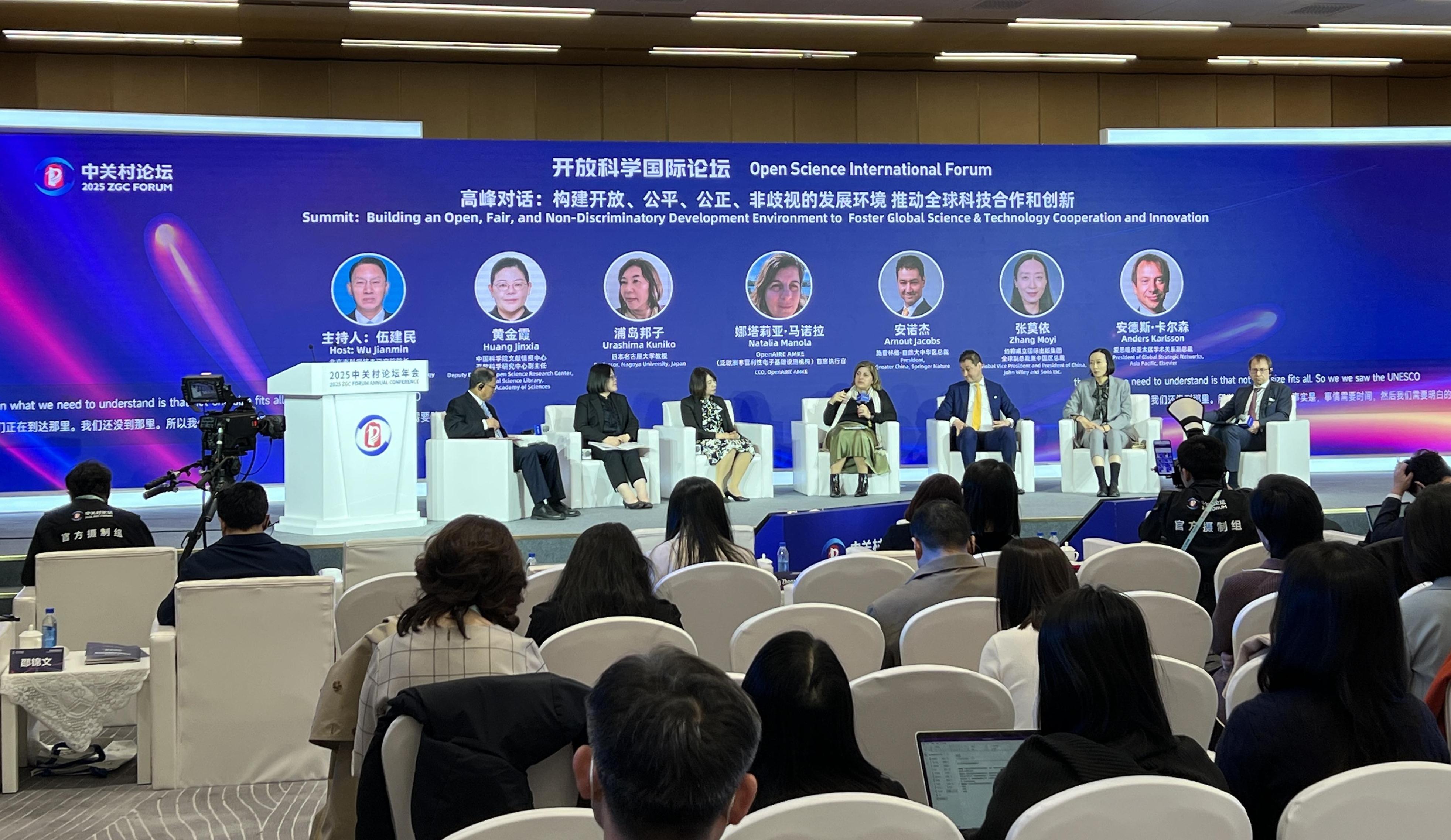Better Understanding the Research Ecosystem

As the UNESCO states, science is mankind's greatest collective endeavor. The public, scientists and governments are all direct or indirect participants in the scientific enterprise. Their understanding and perception of science collectively influence whether science effectively responds to societal realities.
As a participant in the scientific endeavor, the Journal of Data and Information Science (JDIS) focuses on the science of science from a data and quantitative perspective, aiming to enhance stakeholders' understanding of interactions within the scientific community and the dynamics between science and society.
In recent years, sustained exposure to academic misconduct worldwide has damaged the public's trust in science and reduced the confidence of researchers. For the sake of better science, the JDIS has initiated a series of activities to respond to and reverse this situation.
The evolution of research prestige
Historically, scientists and scientific institutions held prestige among peers and society. As scientific research evolved into a state-sponsored enterprise, the 19th-century efforts to measure scientific prestige, like Alphonse de Candolle's, who counted foreign members of scientific societies and academies, laid the groundwork.
In the 20th century, the advent of indicators such as the journal impact factor (which measures how frequently the average article in a journal has been cited in a particular year) became proxies for assessing prestige and quality. Despite early warnings against using such indicators for individual assessments, the "publish or perish" mentality took hold, impacting research topics, publication decisions and career advancement.
Although earlybibliometricianssuch as Anthony van Raan (Leiden University, the Netherlands) warned not to use such indicators for the assessment of individuals, calling such a practice a mortal sin, past events led to the exact opposite. Recall Jorge E. Hirsch's h-index, which was introduced by Hirsch in 2005, and is calculated based on the number of papers a researcher has published and the number of times their papers have been cited. For example, if 107 of a scholar's 900 publications are cited more than 107 times, his h-index is 107.
The increased reliance on bibliometric indicators resulted in a culture of "playing the indicators," influencing scientists to prioritize quantity over quality. Research evaluations, often based solely on indicators,determinedcareer trajectories.
The dark side: fraud and paper mills
In this environment, fraudulent practices, including data and image fabrication,becameno exceptions anymore. Unscrupulous companies, known as paper mills, emerged, offering ready-made publications for sale. Some successfully infiltrated prestigious journals, leading to retractions and damaged reputations.
Retractions, while essential for maintaining scholarly integrity, pose challenges for publishers. While acknowledging that mistakes can occur, retractions due to fraudulent behavior damage the reputation of authors, editors and publishers alike. Fraudulent practices, including the use of paper mills, have posed a significant threat to the credibility of published research.
The JDIS aggregates and disseminates research that uses interdisciplinary approaches and large data sets to reveal the mechanisms underlying scientific research activities, thereby helping the public understand how science drives social progress, helping scientists improve their own work, helping governments develop more beneficial policies, and ultimately contributing to promoting better science.
Combating scientific fraud and ensuring research integrity
In 2023, the JDIS issued a special call for papers on research integrity. The call aimed to encourage policymakers, scientometricians, publishers, institutions and researchers to delve into research strategies for countering academic misconduct.
The JDIS's commitment extends beyond publishing; it actively organizes symposia on crucial issues like research integrity, fostering engagement with the editorial board and the broader scientific community.
In conjunction with the publication of the Research Integrity special issue, the JDIS, in collaboration with Beijing Normal University at Zhuhai in Guangdong province, south China, organized a symposium in Zhuhai in 2023 addressing "research integrity." The symposium attracted representatives from leading international publishers, including Wiley, Taylor & Francis, Springer Nature, Sage Publications, Elsevier, Frontiers, IOP Publishing, PLoS, IMR Press, and other organizations such as COPE, Crossref, China Educational Publications Import & Export Corporation, the China Hospital Research Integrity Alliance, and the Charlesworth Group.
During the event, a memorandum of understanding was signed, signaling the collaborative effort required to safeguard the integrity of scientific research.
Going forward, the JDIS will continue supporting policymakers and the public in understanding evolving patterns in scientific development and scientific growth. This includes promoting the prudent use of scientific evaluation tools and collaboratively creating a supportive environment for research and innovation. All of these initiatives serve our ultimate goal, that is, enabling researchers to publish the best possible scientific research to create a better life.
The author is the Co-Editor-in-Chief of the JDIS.
Comment
I see the JDIS as boosting the transition of China from playing a minor role in the information science field 20 years ago to being a major contributor today.
Twenty years ago, in Western information science journals there seemed to be few articles written by Chinese scholars based in China. After this, there was an increase in submissions to Western journals from China-basedscholarsbut these tended to be very quantitative-focused and methods-focused with a lack of theory, so the findings were not very useful or impactful.
Today, there are many important research groups and scholars in China in the field of information science that are looked up to in the West. I think this has occurred due to efforts like the JDIS, which has bridged and facilitated academic dialogue between China and the world. It has also served as a flagship to promote the idea of disseminating Chinese scholarships outside of China.
I am hoping that the future will see China introduce new approaches and topics in the field of information science, leading the world in what is researched and how it is researched in the field. This is perhaps the next stage and the JDIS would be the perfect venue to host this transformation.
——Mike Thelwall, the commentator, is a professor at the Information School, University of Sheffield, the UK.







